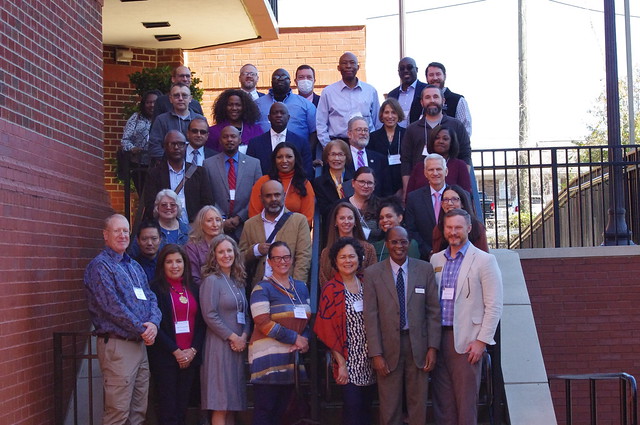Auburn University puts effort to promote STEM education
More than 60 participants from academia, government, industry and the local community convened on the Auburn University campus recently for the inaugural meeting and symposium of the Institute for Strengthening Pathways and Research Knowledge in STEM, or SPARK STEM Institute. The institute, which consists of two separate, but cooperating centers, falls under Auburn’s Office for Special Projects and Initiatives.
According to Overtoun Jenda, Auburn’s assistant provost for special projects and initiatives and SPARK STEM director, the institute was inspired by a new $10 million grant from the National Science Foundation, or NSF, and several other broadening programs already housed in the office. The institute is a multi-institutional effort to lead and coordinate national and international programs promoting science, technology, engineering and mathematics education through two coordinating centers—one for underrepresented and underserved populations and a second for persons with disabilities.
Currently, more than 80 affiliate institutions and organizations are collaborating with the institute on various ongoing projects and initiatives.
At the inaugural meeting, Jenda said, “participants networked and attended breakout sessions to discuss priority areas for the institute to focus on in its initial five years. Over the life of the institute, our overarching goal is to increase college and workforce readiness and the number of associate, undergraduate and graduate degrees in STEM disciplines among our targeted groups. Our core effort is to provide mentorship and guidance to encourage and support student success.
“This will be achieved and sustained by leveraging funding sources, conducting impactful service, involving exceptional and engaged faculty and mentors and developing creative and transformative research-based models for improving academic performance and social integration in STEM disciplines.”
The two-day event included multiple breakout sessions led by representatives from academia, industry, community and government. The keynote speaker was Fay Cobb Payton, Professor Emeritus of Information/Technology Systems at North Carolina State University. Foundation representatives also attended to give updates on NSF programs, and attendees also included representatives from a number of partners, including the Alabama Cooperative Extension System, the Alabama Department of Rehabilitation Services, Southern Company and Southwest Airlines.
Cooperating universities in the multi-institutional effort were also well represented. Mohammed Qazi, associate dean and professor of mathematics at Tuskegee University, welcomed the guests to a working dinner, while Carl Pettis, provost and vice president of academic affairs and professor of mathematics at Alabama State University, delivered the symposium’s closing remarks.

